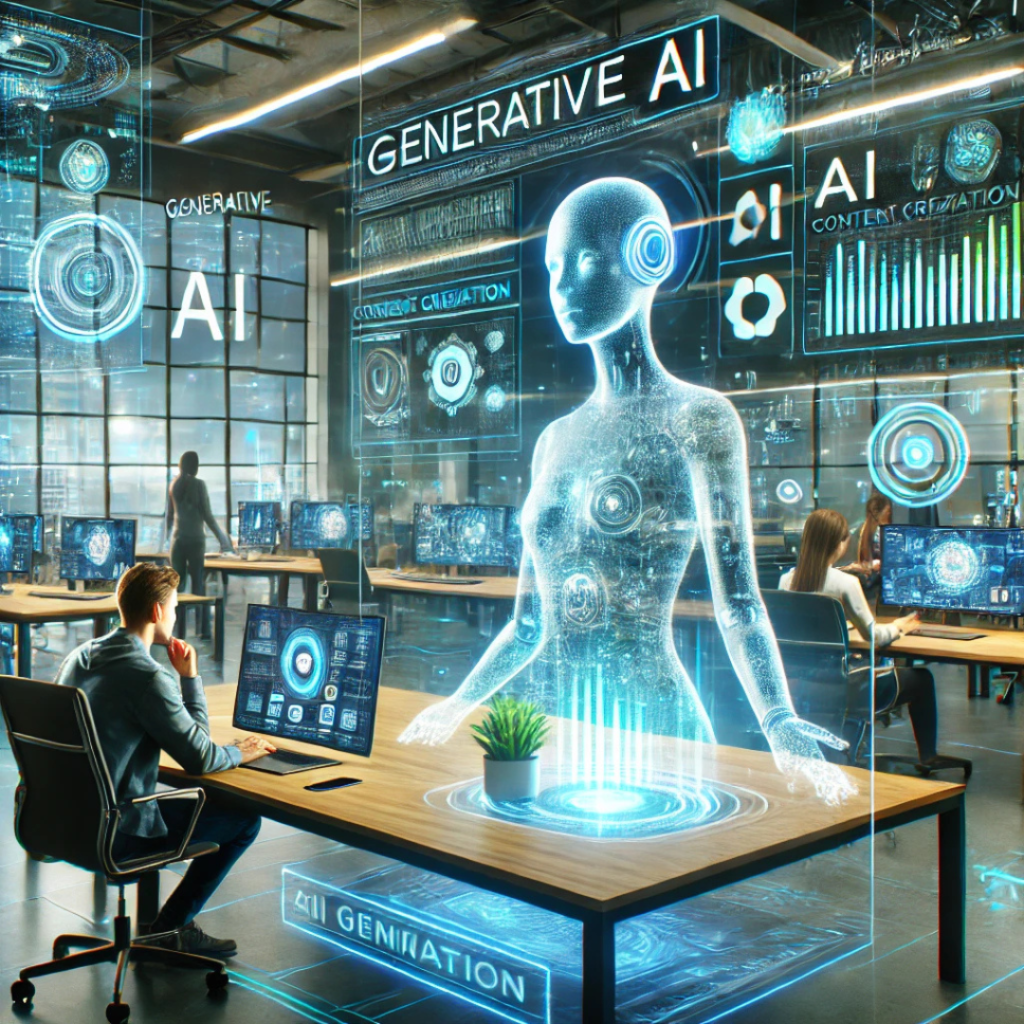Table of Contents
Toggle
What is Generative AI in Marketing?
Generative AI refers to artificial intelligence models, like ChatGPT and DALL·E, that create new content such as text, images, videos, or audio based on input data. In marketing, generative AI is used to produce blog posts, product descriptions, social media captions, email templates, and even ad creatives with minimal human intervention.
Key Applications of Generative AI in Marketing
Content Creation
Generative AI tools like Jasper and Writesonic enable marketers to create high-quality blog posts, social media updates, and video scripts in minutes. AI also ensures keyword optimization for better SEO performance, allowing businesses to rank higher in search engine results.Personalized Email Marketing
AI algorithms analyze customer behavior and preferences to craft personalized emails, increasing open rates and conversions. AI also enables automated A/B testing for subject lines, designs, and calls-to-action.Dynamic Ad Campaigns
AI-powered platforms like Meta Ads and Google Ads use generative AI to create and optimize ad copy, images, and targeting strategies in real time. This reduces manual workload while maximizing ROI through better audience segmentation.Social Media Management
Generative AI creates engaging captions, hashtags, and even entire posts tailored to the target audience. Tools like Canva’s AI can design visual content, while platforms like Hootsuite integrate AI for scheduling and performance tracking.SEO Optimization
AI-driven tools help in keyword research, meta tag generation, and even creating SEO-friendly landing pages. With programmatic SEO, businesses can scale their content strategies by generating thousands of optimized pages for long-tail keywords.
Benefits of Generative AI in Marketing
Cost and Time Efficiency
Generative AI automates repetitive tasks, allowing marketers to focus on strategy and creativity. This reduces costs associated with manual content creation and campaign management.Enhanced Personalization
By analyzing large datasets, AI can tailor marketing messages to individual customers, improving engagement and customer satisfaction.Scalability
Businesses can scale their marketing efforts rapidly by producing vast amounts of content without compromising quality.Improved ROI
With AI’s ability to optimize campaigns in real time, businesses can achieve better results with lower budgets.
Best Practices for Using Generative AI in Marketing
Start Small
Begin by integrating AI into one aspect of your marketing, such as email campaigns or blog writing, and gradually expand its use.Maintain Human Oversight
While AI can automate tasks, human oversight ensures the content aligns with brand voice and avoids ethical issues.Invest in Training
Equip your team with the skills needed to use AI tools effectively, from prompt engineering to analyzing AI-generated insights.Prioritize Data Privacy
Ensure compliance with data protection regulations when using AI tools that handle customer data.
Future Trends in Generative AI Marketing
- AI-Powered Visual Content: Tools like DALL·E and MidJourney will dominate creative campaigns, producing custom visuals and infographics.
- Voice Search Optimization: AI will play a vital role in optimizing content for voice search, catering to the growing number of smart device users.
- Real-Time Personalization: AI will enhance customer experiences with instant recommendations and dynamic content updates.
Generative AI is no longer a futuristic concept but a present-day necessity for marketers aiming to stay ahead. By automating tasks, enabling personalization, and driving creativity, it is reshaping the way brands connect with their audiences. Embracing generative AI is not just about adopting a tool—it’s about transforming your marketing strategy to align with the future.

